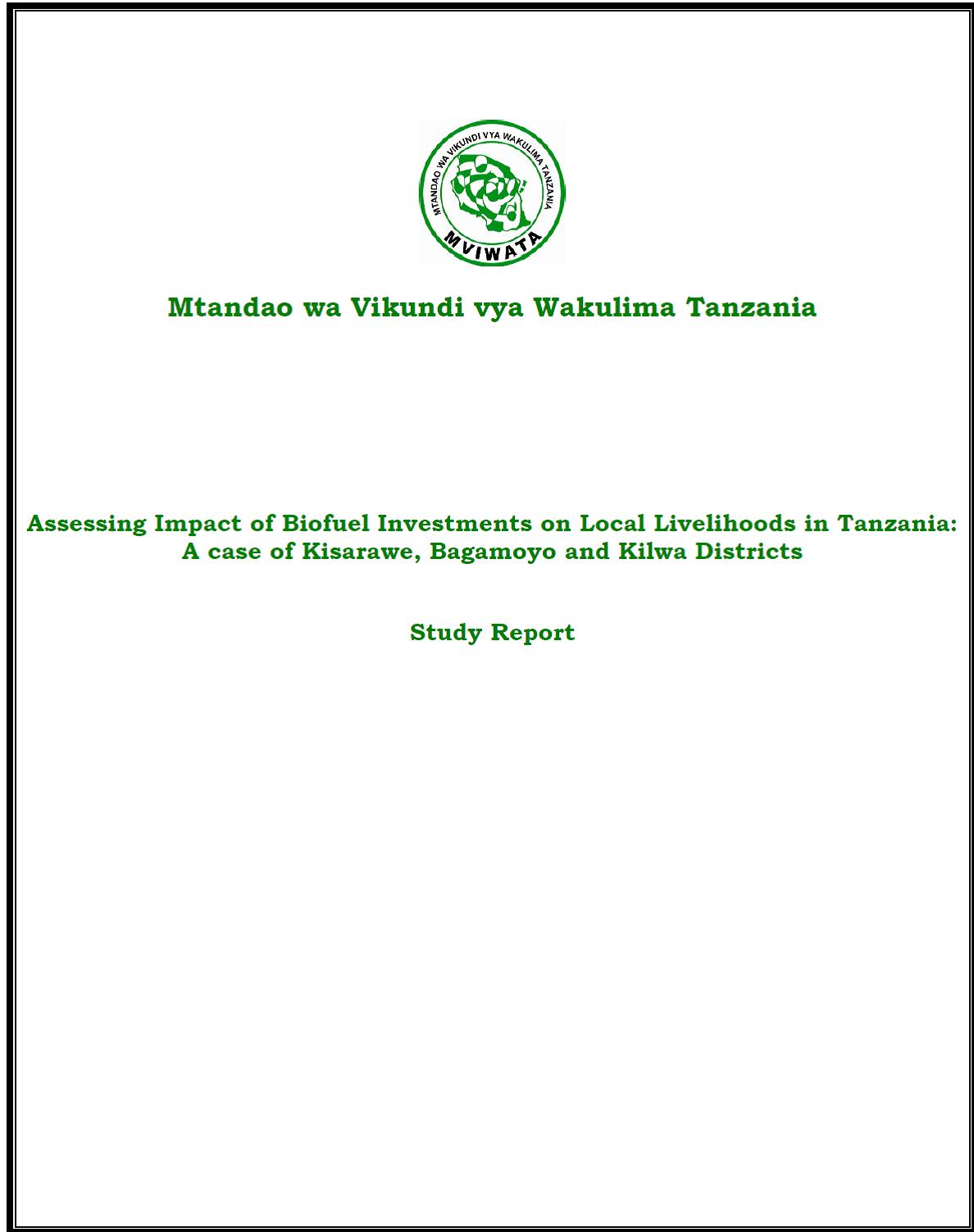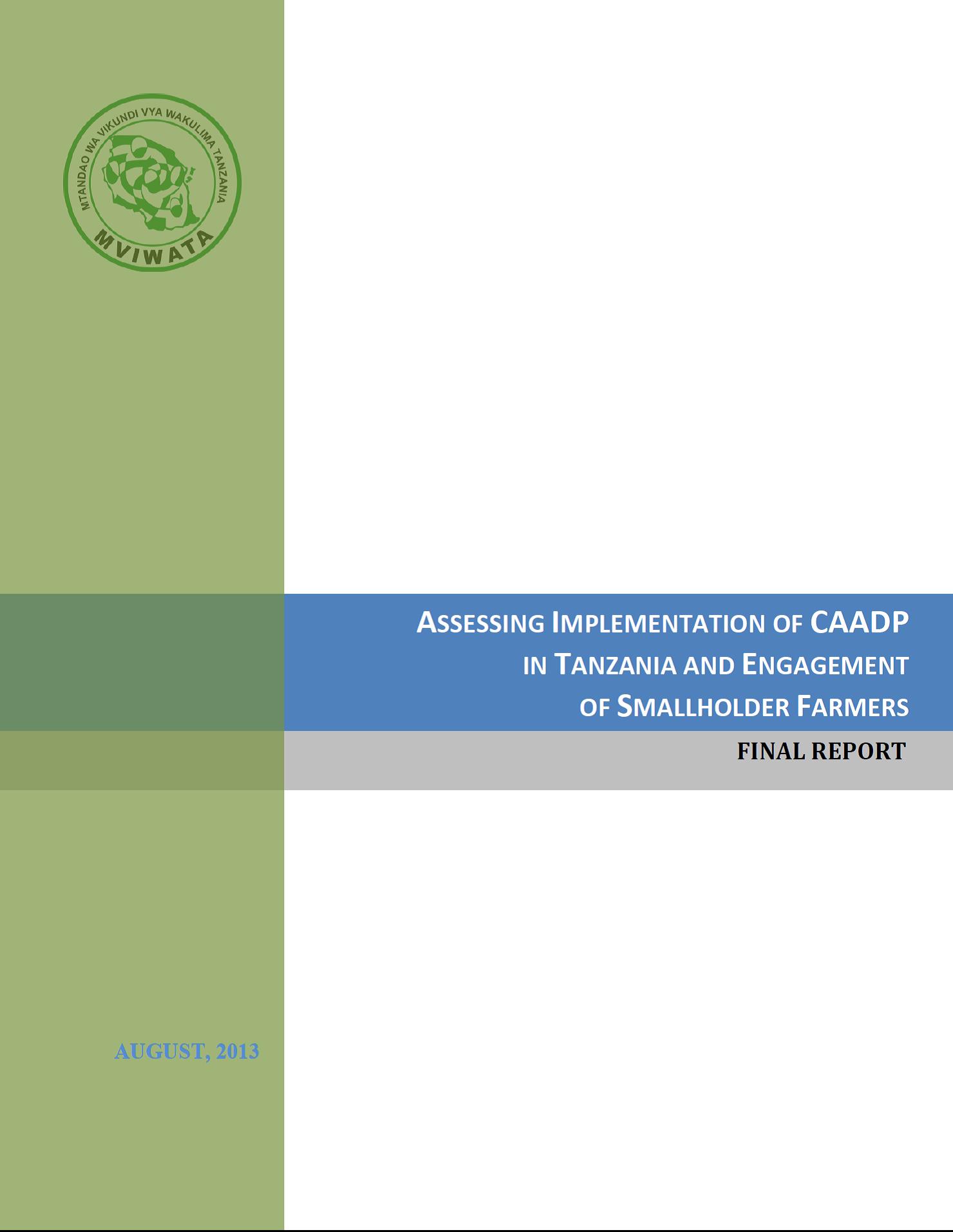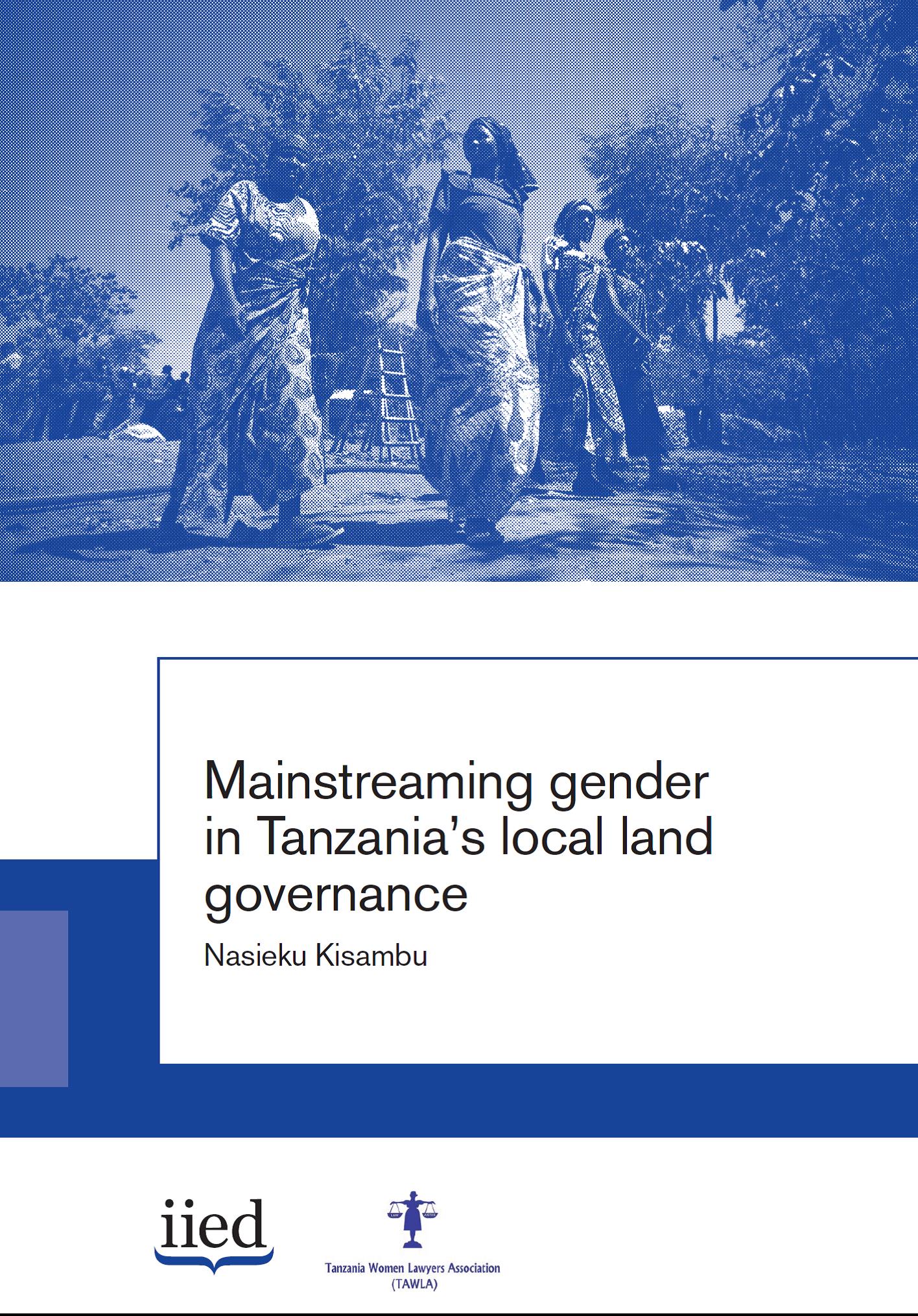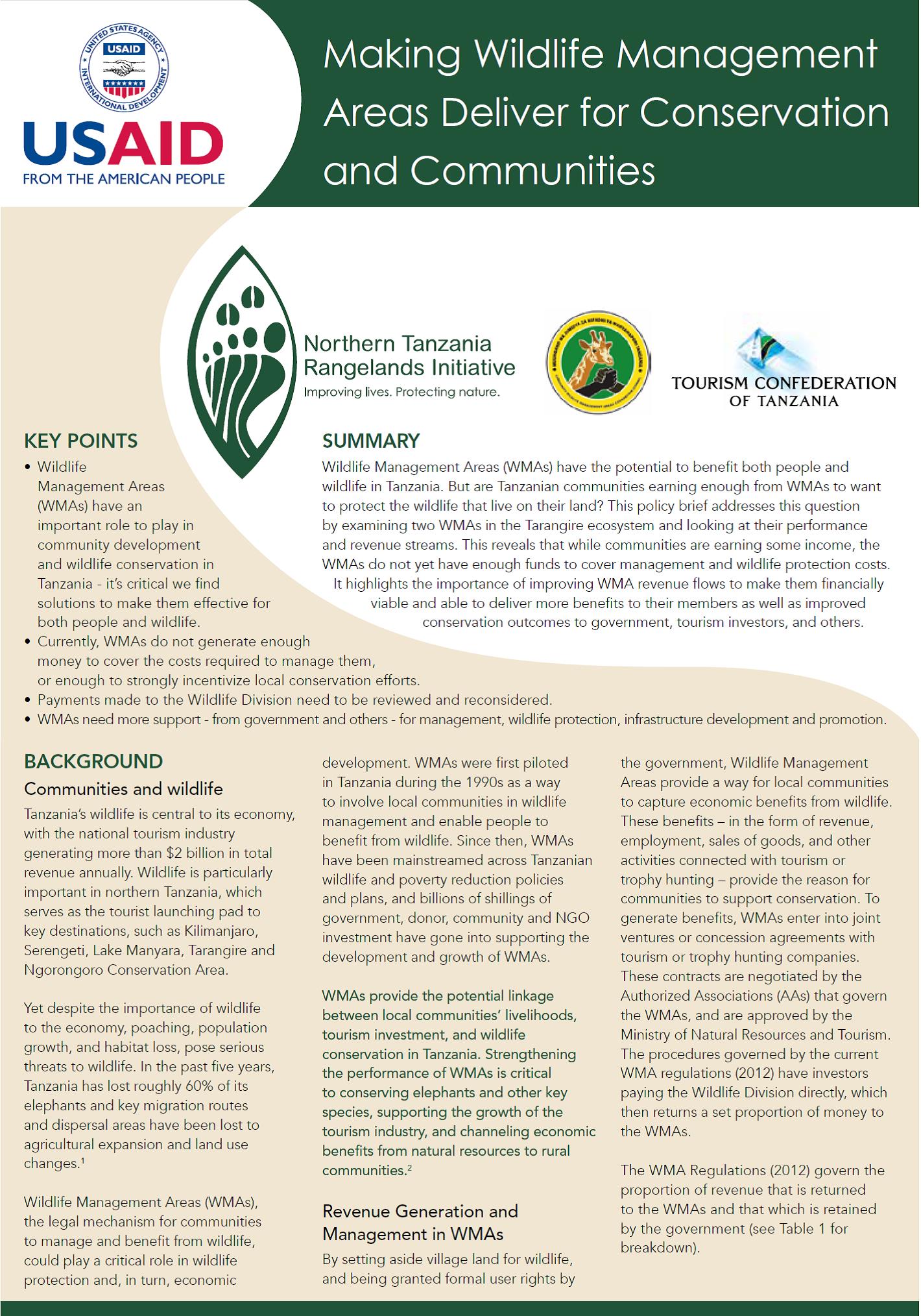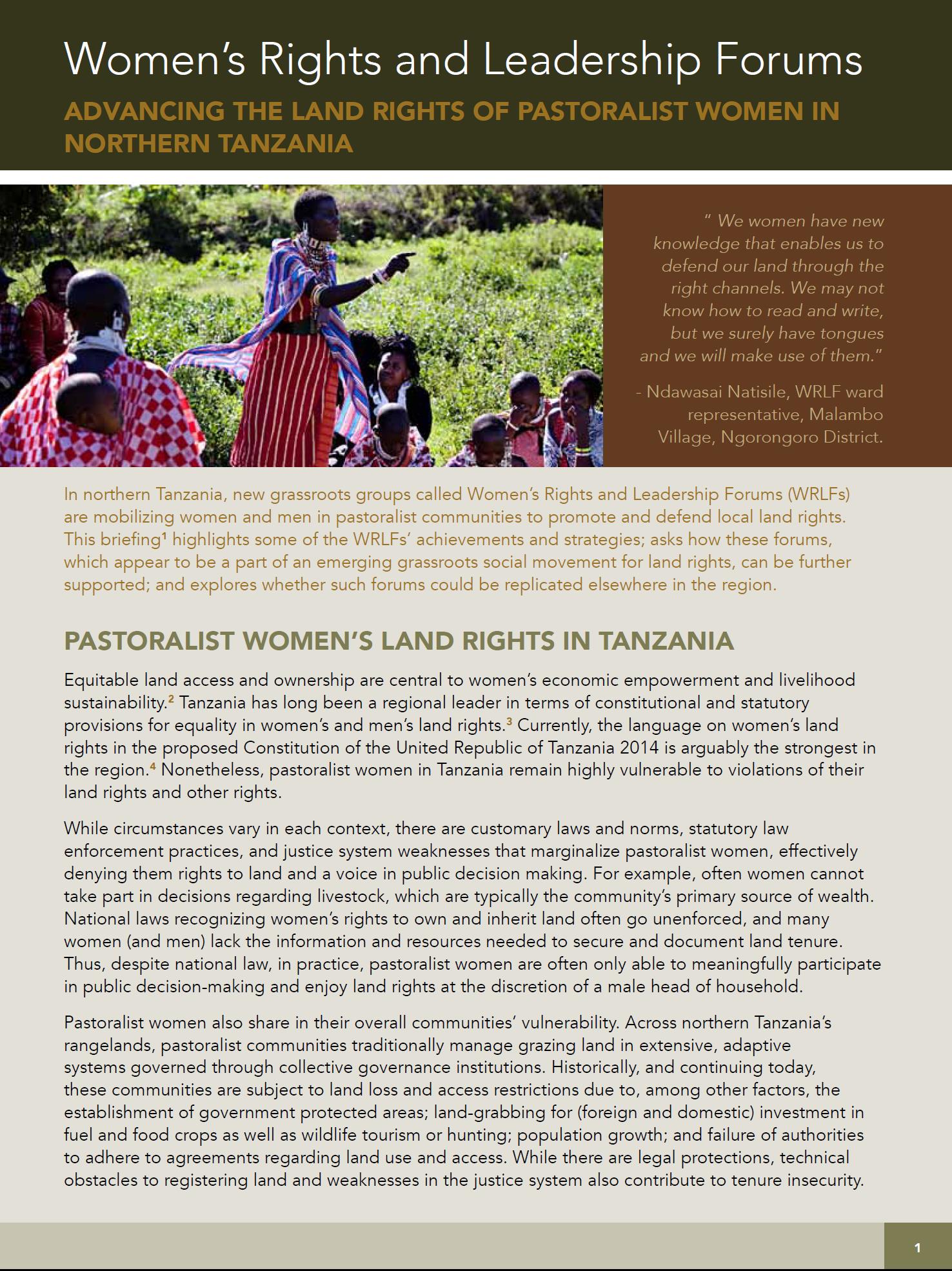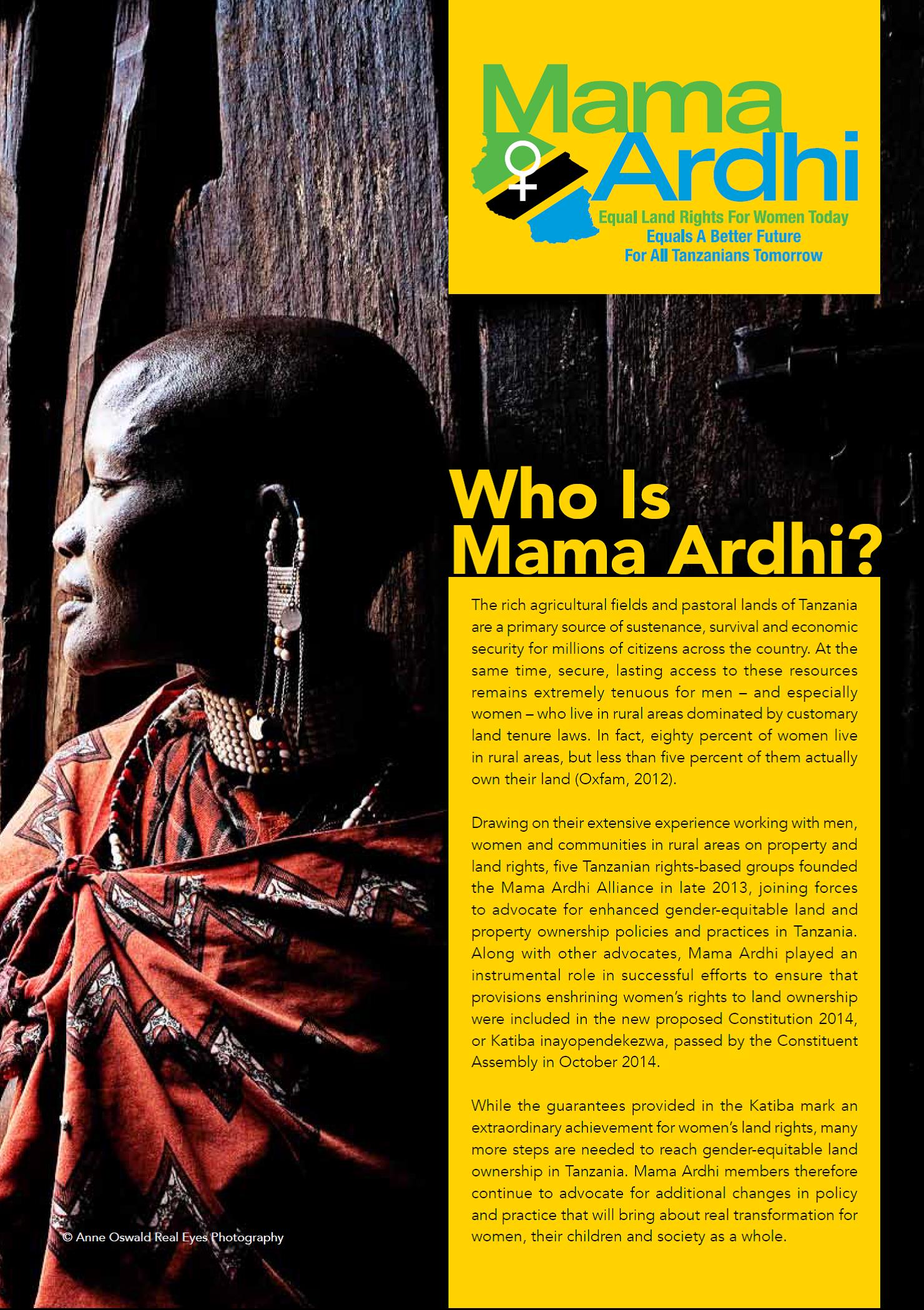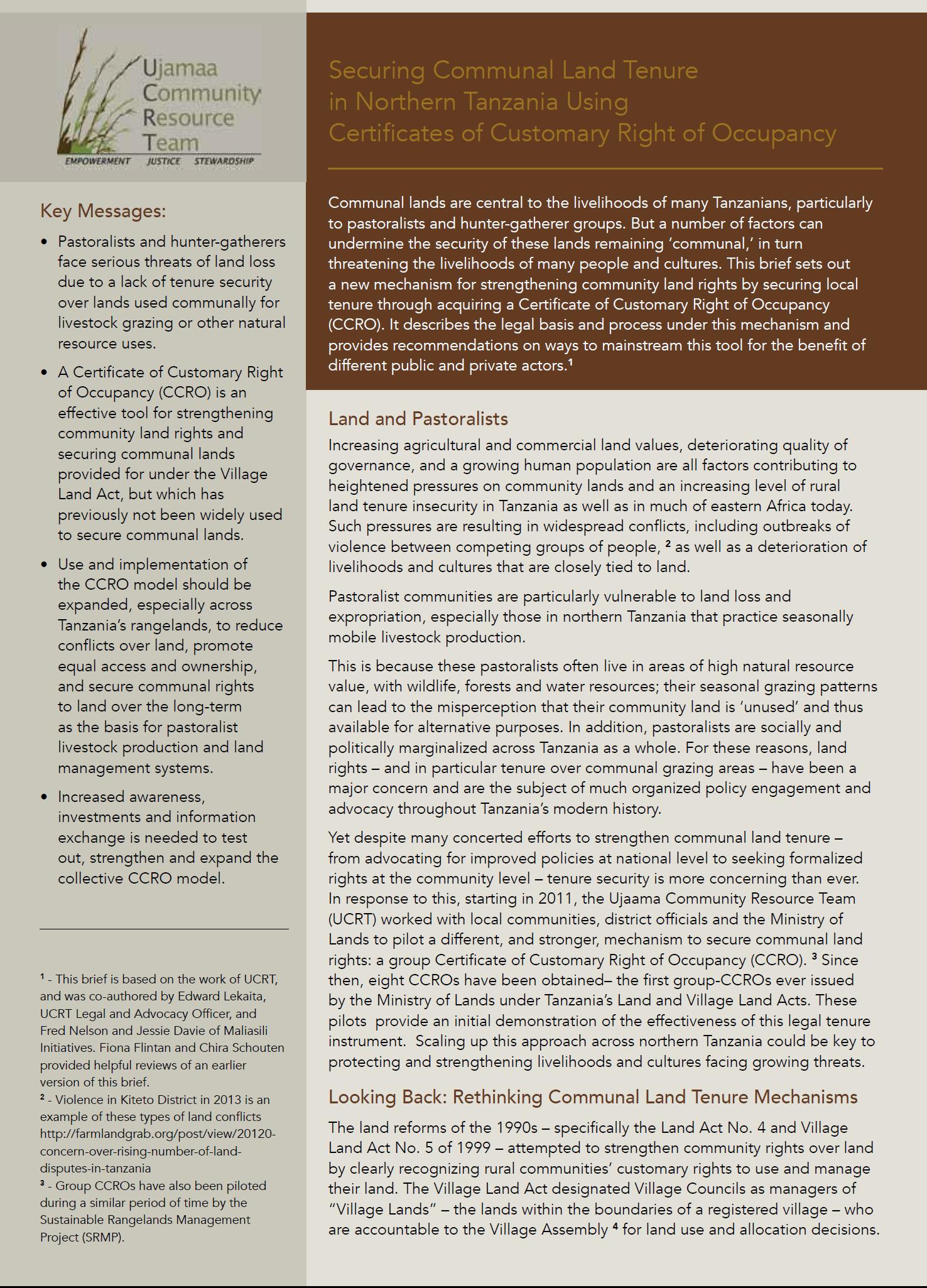
Topics and Regions
Godfrey Eliseus Massay is a lawyer and land tenure specialist.He has eight years of experience working on land rights and in the natural resource sector in Tanzania, and has written and published numerous articles on land rights in both national and international academic journals.
Details
Location
Contributions
Displaying 141 - 150 of 218Conservation and “Land Grabbing” in Rangelands: Part of the Problem or Part of the Solution?
Large-scale land acquisitions have increased in scale and pace due to changes in commodity markets, agricultural investment strategies, land prices, and a range of other policy and market forces. The areas most affected are the global “commons” – lands that local people traditionally use collectively — including much of the world’s forests, wetlands, and rangelands. In some cases land acquisition occurs with environmental objectives in sight – including the setting aside of land as protected areas for biodiversity conservation.
Maliasili Initiatives
Maliasili Initiatives is a non-profit organization that supports the growth, development and performance of leading civil society organizations working to advance sustainable natural resource management practices in Africa.
Assessing Impact of Biofuel Investments on Local Livelihoods in Tanzania
The main objective of this study was to assess the impacts of biofuel investments in local livelihood systems and local economy in Tanzania.
Assessing Implementation of CAADP in Tanzania and Engagement of Smallholder Farmers
Specific objectives of the study included reviewing the state of implementation of CAADP in Tanzania in the context of on-going multiple development initiatives; identifying and analyse gaps on policies and frameworks related to CAADP implementation; making objective analysis of commitment of the Government of Tanzania to 2003 Maputo Declaration; and assessing engagement of small scale farmers in CAADP process in Tanzania
Mainstreaming Gender in Tanzania’s Local Land Governance
Despite progressive provisions on gender equality in Tanzania’s land laws, women have little representation in land allocation decisions, including meetings of village councils and village assemblies. Mainstreaming gender in local regulations can help to address this problem.
Strengthening Women’s Voices in the Context of Agricultural Investments
Making Wildlife Management Areas Deliver for Conservation and Communities
Wildlife Management Areas (WMAs) have the potential to benefit both people and wildlife in Tanzania. But are Tanzanian communities earning enough from WMAs to want to protect the wildlife that live on their land? This policy brief addresses this question by examining two WMAs in the Tarangire ecosystem and looking at their performance and revenue streams. This reveals that while communities are earning some income, the WMAs do not yet have enough funds to cover management and wildlife protection costs.
Women’s Rights and Leadership Forums
In northern Tanzania, new grassroots groups called Women’s Rights and Leadership Forums (WRLFs) are mobilizing women and men in pastoralist communities to promote and defend local land rights. This briefing highlights some of the WRLFs’ achievements and strategies; asks how these forums, which appear to be a part of an emerging grassroots social movement for land rights, can be further supported; and explores whether such forums could be replicated elsewhere in the region
Who Is Mama Ardhi?
While the guarantees provided in the Katiba mark an extraordinary achievement for women’s land rights, many more steps are needed to reach gender-equitable land ownership in Tanzania. Mama Ardhi members therefore continue to advocate for additional changes in policy and practice that will bring about real transformation for women, their children and society as a whole.
Securing Communal Land Tenure in Northern Tanzania Using Certificates of Customary Right of Occupancy
Communal lands are central to the livelihoods of many Tanzanians, particularly to pastoralists and hunter-gatherer groups. But a number of factors can undermine the security of these lands remaining ‘communal,’ in turn threatening the livelihoods of many people and cultures. This brief sets out a new mechanism for strengthening community land rights by securing local tenure through acquiring a Certificate of Customary Right of Occupancy (CCRO).



